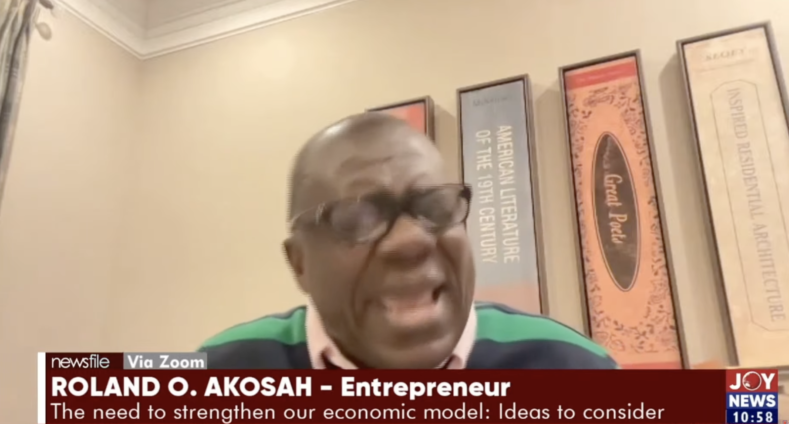The year 2022 has been extremely stressful for Ghana – for our economy, our political order, our government, and our people. However, these difficulties of times should not have come as a surprise –especially, to our policymakers.
The steep depreciation of the Ghana Cedi was hugely predictable. Despairing poverty that has afflicted most Ghanaians was equally foreseeable. Today, we bemoan our woes and our loss of self-worth. The inconvenient truth, though, is that our current economic structure is not fit for purpose. Since the 1980s, we have implemented an economic model that is saddled with a major weakness.
Why this is the case? In the 1980s, we engaged in a series of fundamental economic reforms. In short order, the rigid state control of our economy was eventfully relaxed. We effectively abolished price controls.
Businesses could import goods and services without going through the tedium of applying for import licenses. Also, reforms in the banking and financial sector freed our banks from an overbearing administrative state, that was used to set the price of a loaf of bread, as well as the cost of money. Unrestricted, a bank could now set its own borrowing and lending rates.
The Bank of Ghana could conduct regular auctions of foreign exchange. This novelty allowed the markets to set the value of our currency, in relation to foreign currencies - say, the Pound Sterling, the US dollar, or the Euro.
Meanwhile, the central government divested dozens of state-owned enterprises. It was hoped that the government would no longer be burdened with several, money-losing corporations. Our precious resources could be applied elsewhere in the economy. The private sector could step into the industries that our government had vacated.
In due course, Ghana would become a free market economy. Our beloved country was open for business. We were goaded and helped along the way by our international development partners – with ample cash and effusive accolades. In time, every conceivable consumable good would be available on our markets.
In a similar vein, in the early 1990s, we reformed our political culture. We promulgated our Fourth Republican Constitution. And since January 1993, we’ve zestfully implemented a constitutional order. We relish our turbo-charged, restored freedoms - with boundless, and raucous energy. We uphold the rule of law, freedom of speech and association, uncensored press, and universal adult suffrage. We are also inspired by competitive politics, galvanizing grassroots politics, free and fair elections, and changing our governments by the ballot, not by the bullet.
Here, too, just as in our economic endeavours, our international development partners have been forthcoming. They have spared no effort to pledge assistance, to deploy cash, as well as to heap plum praises upon our country. Theirs has been an unfailing support to beef up our democratic stock – girth and worth. In the early 2000s, we even benefitted from historic debt relief. We have since had access to international capital markets, where we may borrow money at will.
Until, of course, recently.
Now, though, despite our seeming progress, we have teeming problems. One may advance multiple arguments to resolve this paradox. All other things considered; let us examine the choices we have made since the fateful 1980s. Our choices have been consequential.
The success of our economic reforms has always rested on a simple predicate. We should be able to export highly valuable goods and services to our trading partners, even as we import massively from them. Regrettably, this hasn’t been the case.
Hence, our economy fails to create jobs, at decent, livable wages. Youth unemployment is sky-high. The Ghana Cedi continually plummets in value. Our nation is riven with implacable inequalities - in the distribution of wealth, and, thus, in living standards. All this threatens our national cohesion and heralded democratic enterprise.
All is not lost, though. First and foremost, we must acknowledge the fact that our economy is in a state of unsustainable imbalance.
Forebodingly, it could pivot towards disarray and utter disrepair. More importantly, we must explore the opportunities that are inherent in our current circumstances. The good news is that there are policy tools with which to stabilize our economy. A cautionary note is in order: palliatives won’t pass muster.
What we require is an adroit, depoliticized repair works – such as we would likely deploy if our country were attacked by a foreign enemy. Our ruling elites and the people of Ghana should marshal the courage of conviction to rally our nation to do battle, ultimately, against poverty, a mortal enemy, who takes no hostages and cares less about political party allegiances.
Let the discussion flow.
*****
This was presented on Newsfile on December 31, 2022
Latest Stories
-
SML fully delivered on Transaction Audit Service Agreement with GRA
19 mins -
Government trying to hide something from SML/GRA contract – Arthur Kennedy
23 mins -
Don’t encourage lateness and foolishness – Ace Ankomah to UG Vice Chancellor’s award winners
25 mins -
‘Obroni wawu’ traders plan to protest over Kumasi Central Market Redevelopment delays
30 mins -
Gold Fields Ghana boosts cocoa production in Huni Valley District through Cocoa Farmers’ Support programme
31 mins -
Spanish government to oversee football federation after Luis Rubiales scandal
43 mins -
TikTok will not be sold, Chinese parent tells US
50 mins -
Bawumia is ready to announce his running mate – Miracles Aboagye
57 mins -
Works and Housing Ministry launches BENCHH 2024
1 hour -
You misunderstood Bawumia’s ‘driver’s mate’ analogy – Miracles Aboagye tells Naana Opoku-Agyemang
2 hours -
Bulk Oil Distributors object to government’s plan to designate BEST sole off-taker
2 hours -
NPP likely to retain Ejisu seat – Global InfoAnalytics
2 hours -
Government allocates $20m for Kpong Irrigation Scheme expansion
2 hours -
Today’s front pages: Friday, April 26, 2024
2 hours -
Suspend implementation of Planting for Food and Jobs 2.0 – Stakeholders to government
2 hours

